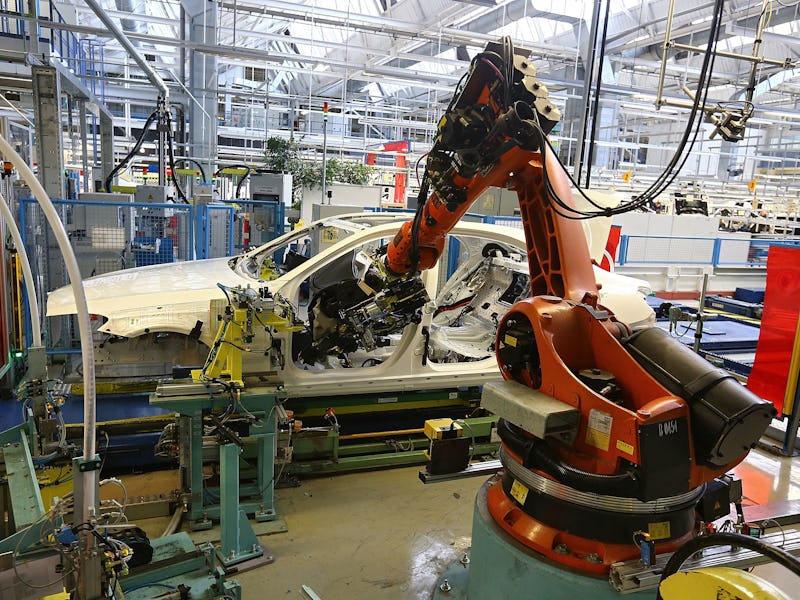Sure, We Think Robots Will Take More Jobs, but They Won't Take Our Jobs
A new study shows we expect the robot revolution to hurt everyone except ourselves.

You can add denial to the list of primitive defense mechanisms your future robot boss won’t be saddled with, yet it’s the one we’re aware of when we think about how replaceable we are.
A new public opinion survey from the Pew Research Center released on Thursday finds that while most respondents (65 percent) agreed robots would take over most jobs in 50 years, even more (80 percent) offered this typically human response: They were sure that robots wouldn’t take their jobs, but it’s those other people who should worry. (Oh, and those who felt most secure tended to be younger than 50, college-educated, and with high-paying jobs in government, education, or nonprofits.)
Ready to take your job.
Here are a few more highlights from the 2,001 adults surveyed from June 10 - July 12, 2015:
- 13 percent are concerned that they won’t be able to keep up with the technical skills needed to stay competitive in their jobs.
- 26 percent of workers are concerned that they might lose their current jobs because the company they work for is poorly managed.
- 10 percent of workers are worried about losing their jobs to an automated workforce, but are more concerned about lower-paid human competition.
It’s possible this disconnect comes from a notion that robots as being most useful for either dangerous or unskilled labor. The fire-fighting robots the Navy unveiled in February 2015, for example, or the piston-pumping fast food workers of tomorrow.
You used to this job.
If so, you are either woefully overestimating how difficult your job is, or dangerously underestimating how advanced robots have become. There are robot lawyers, robot doctors, and, sweet merciful crap, robot journalists capable of writing a 1,000-word story in a minute — and rusting in hell for eternity for all I care.
Even legendary, lamented, Motörhead frontman Lemmy Kilmister has a robotic doppleganger ready to take his place, give or take a Jack Daniels and Coke. Or three.
The danger of your office becoming a robocracy was laid out in February by Australia’s Commonwealth Scientific and Industrial Research Organization report, ”Tomorrow’s Digitally Enabled Workforce.” The report found that as low-skilled jobs are outsourced or automated, the bar will rise for access to even entry level positions that will most likely require some expertise in science, tech, engineering, or mathematics (STEM). Guess which subjects both Australian and American students happen to lag behind in?
How good are you with an oil can?